Dear White People was created three years ago, but it has never stopped being relevant and you might want to check it out. Here’s a rundown of each episode. Stick around at the end for my overall season review.
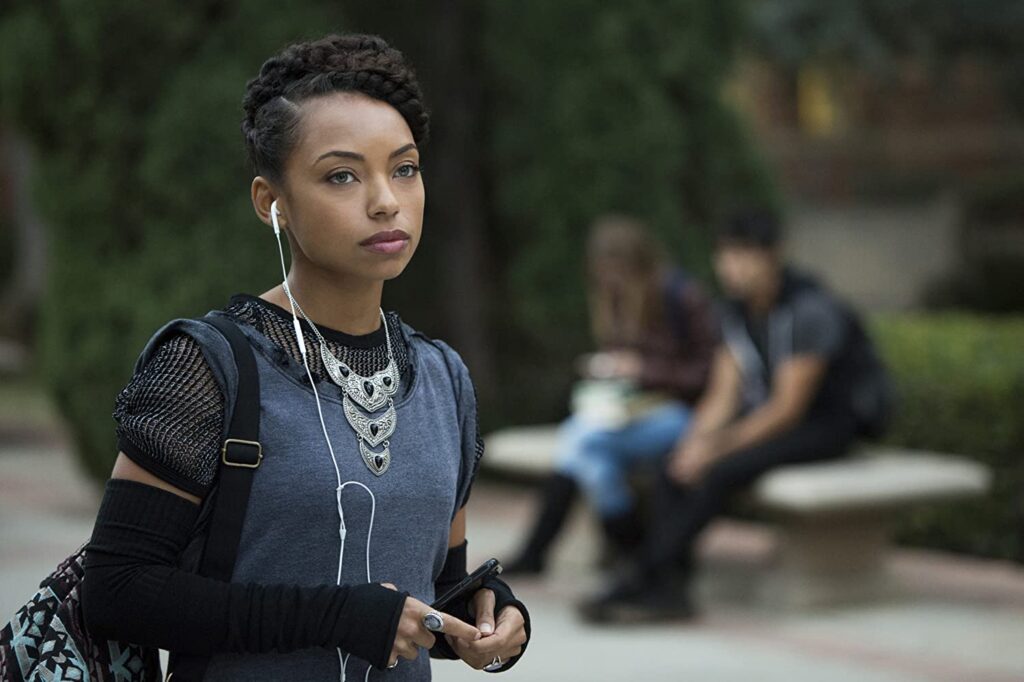
Sam White considering her actions. Credit: IMDB.
Chapter 1:
The series starts off simply enough with an introduction to Winchester University (I miss you Supernatural!). It’s an Ivy League college with a majority white student body, a prestigious humor publication, and well, after Halloween, a bit of a PR crisis.
See, the members of that prestigious humor publication – Pastiche – decided it would be a good idea to throw a “Dear Black People” blackface party. Why? Because social justice warrior Samantha White (Logan Browning), got tired of dealing with minor racist microaggressions and started a radio program which gives us the series’ title: “Dear White People”.
Sam, the biracial leader of the Black Student Union (BSU) with a skeleton in her closet, is the focal character for this episode. While she comes off as your typical borderline militant black power character. Her secret shame is soon exposed: she’s banging a white guy!
This leads to an uncomfortable confrontation with the other members of the Black Student Caucus (who she insulted just prior to the revelation). The harshest critic being her best friend Joelle Brooks (Ashley Blaine Featherson). Luckily, Joelle values her friend’s happiness and they are OK.
Later though, in an attempt to merge her two worlds, Sam’s “white bae” Gabe Mitchell (John Patrick Amedori), gets into an argument with Reggie Green (Marque Richardson), another member of the BSU and a friend of Sam’s, after trying to engage with him on the subject of a student protest following the blackface party. On top of this Sam learns from Lionel Higgins (DeRon Horton), reporter for the Winchester Independent student newspaper, that him and his editor know Sam sent the invite to the blackface party (after hacking Pastiche’s Facebook account).
All good pilot episodes are designed to do two things: introduce us to the major players of the series and give us a good idea of what the show is about.
“Chapter 1” does a pretty good job of doing both. It lays the foundation down for what the first major storyline will be in the series, creates a moment wherein all – if not most – of the major characters appear (the Black Caucus), and sets the overall tone of the show (satire).
Sam’s speech at the end of the episode sums up the theme of the show. While many people might balk at a title like “Dear White People” and cry racism, the truth is the show’s purpose is to inform. Sam’s tone might be harsh, but her message isn’t. Her message is simple: listen to us, don’t presume to know us, and don’t pat yourselves on the back for a job well done when there’s a fuckton more work to do.
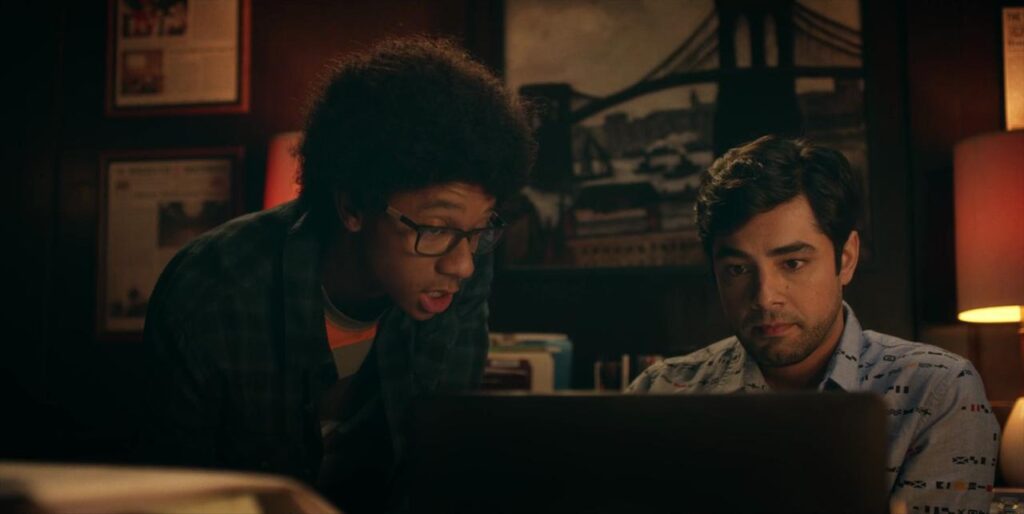
Chapter 2:
This episode starts off recounting the history of racially insensitive parties at Ivy League institutions, then shifts focus to Lionel Higgins. Lionel is a blerd – a black nerd – who was the whistle blower of the “Dear Black People” party. His roommate is Troy Fairbanks (Brandon P Bell), son of the Dean and all-around man about campus.
Lionel’s problems are his hair and his sex drive. The latter gets assistance from his very out newspaper editor Silvio (D.J. Blickenstaff). After going to a party on Silvio’s advice, Lionel is ready to face his truth.
Back at the office with Silvio, after discovering it was Sam who sent out the Pastiche party invite, Lionel betrays his editor to warn Sam that the story will be printed. This leads to her confession on air at the end of the previous episode.
His editor is pissed, but Lionel takes the Shaggy Defense (“it wasn’t me”). He can’t be bothered with the consequences of his actions because his first problem has a solution: Troy is cutting his hair. It’s a big moment for him, and he takes full advantage by coming out to Troy.
This episode gives us insight into how the series plans to play itself out. There is a singular event – the blackface party – that is observed or influenced by different characters. Each character will then get his or her own “character-study” episode that explores not only their Rashomon perspective of the event, but them as individuals.
I liked getting to know Lionel better (could have done without the masturbation scenes), even if the troupe of new-hair = new-me gets used.
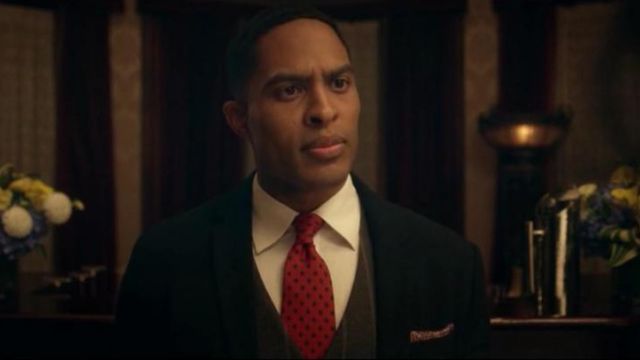
image c/o spotern.com
Chapter 3:
Meet Troy Fairbanks, he’s running for office. If he wins, he’ll be the first black student president (Obama stand-in? See the nickname Troy-bama). It sounds great but there’s a hint he doesn’t want it. Afterall, when given the chance he doesn’t vote for himself. Though that self-doubt could be due to his overbearing tiger-dad.
Daddy Dearest (Obba Babatundé) is a perfection obsessed dictator who rules over Troy’s life to the point of breaking up a relationship he deems inappropriate (bye Samantha), and selecting the college he will attend (bye Southwest). This oppressive regime easily explains Troy’s rebellious drug usage (secret weed smoking), and inappropriate affair (with the lovely Nia Long playing Prof. Neika Hobbs).
Troy’s episode is good for two reasons. One, we get a sense of how human even pillars are. Two, we get some more information from our Rashomon set up.
I would like to take a moment to point out how a comment from the previous episode applies here. In Silvio’s criticism of Lionel’s blackface party piece, he notes the depiction of Pastiche is too simplistic – “it just reads as Pastiche bad, black kids good”, further espousing how Pastiche’s staff isn’t a frat, they are smart people.
Their actions, however seemingly racist on the surface, could have deeper meanings if explored. This links back to the black lawn jockey cover because Pastiche head Kurt Fletcher (Wyatt Nash) defends it claiming the ornaments were signals of safe houses during the Underground Railroad. Troy calls bullshit, and Kurt cites Wikipedia (please note Wikipedia is NOT a reputable cite for sourcing). Now, whether this is true (which some internet digging leans towards maybe???), you do get to see the Pastiche writers are not outright racist. Lazy? Fuck yes. Racist? I would argue not intentionally, which I think is part of the message of this series. Conversation is important, and Sam and the Pastiche writers are two sides of the same coin in that respect – they are both trying to spark conversation by using extreme confrontation.
Oh, yes, and the last thing to note about this episode: Thane Lockwood (Brant Daugherty) dies on the very day Troy is elected president.
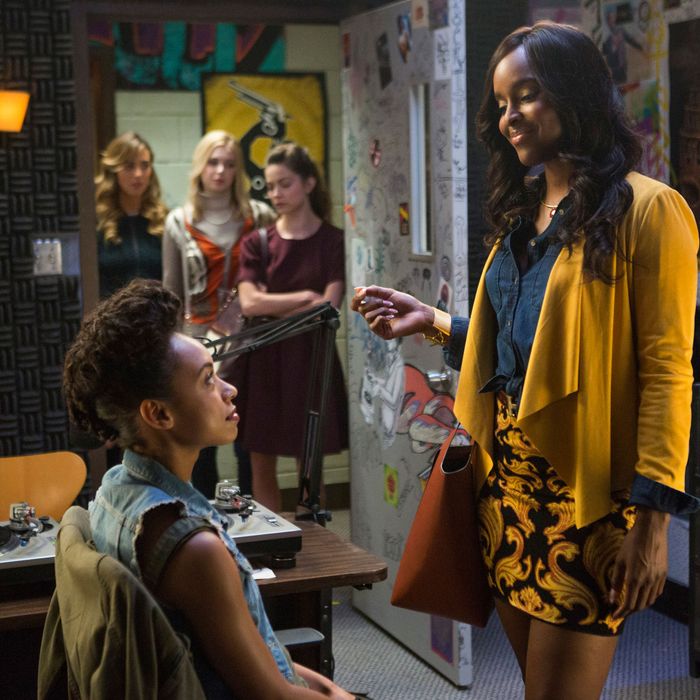
image c/o vulture.com
Chapter 4:
This chapter begins with the eulogy of Thane Lockwood – a jock who dies jumping to his death after a night of binge drinking.
This is one of my favorite episodes because it features arguably the most complex and layered character of the whole series: Thane Lockwood….ha ha ha ha, joking! It’s Colandrea “Coco” Conners (Antoinette Robertson), duh.
Coco’s episode begins with her at the blackface party, invited there by her white friends. She catches sight of Sam holding a camera and unloads her pent-up rage, pointing out that there’s a lot more to racism than an ill-themed Halloween party. And, Coco would know.
See, Coco has been getting shit her whole life for being dark skinned – a famous experiment with little girls and dolls is eluded to here and it’s just as heartbreaking to see in fiction as I imagine it was to witness in reality – as a defense Coco has learned the art of being “white”. She works hard to fit into white culture, because as a dark-skinned black woman she is considered less pretty than her peers.
This is a fascinating exploration of racism that occurs within the black community – it was also a subject explored in Black*ish (starring one Tracee Ellis Ross who Sam is compared to by Joelle).
But the best scenes are the flashbacks to Sam and Coco’s former friendship. The two meet when Coco is trying desperately to avoid being placed in Armstrong-Parker, the historically black housing (going so far as to redact AP from the housing options), Sam, conversely, is excited to be placed in AP.
Over the course of the episode we see Sam and Coco’s bond both strengthen and fray. They can relate over how their skin color has led to certain hardships. Sam being frequently thought of as “not down” because, as Coco puts it “Dear half-white person, you’re just not black enough”, while Coco gets the backhanded compliment of “you kinda pretty for a dark-skinned girl”. The wrench in their relationship is how they choose to overcome these issues.
Coco has learned to play the game. She endures what she must to get what she wants, but she aspires to power for similar reasons as Sam. Sam doesn’t want to be confused for white in any instance as exemplified when the “white” black girl sorority comes a knocking and she wants no part of it, while Coco jumps at the opportunity. It’s akin to a love triangle with acceptance by white culture as the keystone – always chasing after Sam because she’s the right color, meanwhile being chased by Coco who it can never picture itself with (yet secretly has a thing for).
This episode gives us the origin of “Dear White People” – a game played by the two in response to the racial microaggressions they experience on campus. The end of their relationship finds the pair using this game as a weapon with Coco coming out as the clear winner. But time heals all wounds and there is a tiny silver lining to be had – Sam offers an olive branch. Will Coco accept?
One more interesting note is how different Sam’s comments on interracial dating are here. When asked about her preference Sam’s answer is much more nuanced than it appears to be later. See, in the pilot we learn that Sam wrote a paper advising black girls not to date white guys. It’s a purely political stance that suggests any black girl who dates a white guy is a traitor to the race. Freshman-year-Sam gives a more rational reply. She states that there are aspects of her experience that a white guy just couldn’t get. It’s also worth mentioning that at this point in her history, Sam is not the black power firebrand we see in the pilot. She clearly adopts this persona as a defense mechanism for the racism she experiences as a “half-breed” or “zebra” – in other words: biracial.
This is an episode with so much food for thought! The conversations about black hair, the way different black people choose to react to racism, the tragedy of Sam and Coco’s friendship (just to name a few)! Yes, traction alopecia is a real thing – look it up and give your hair a break. It’s amazing.
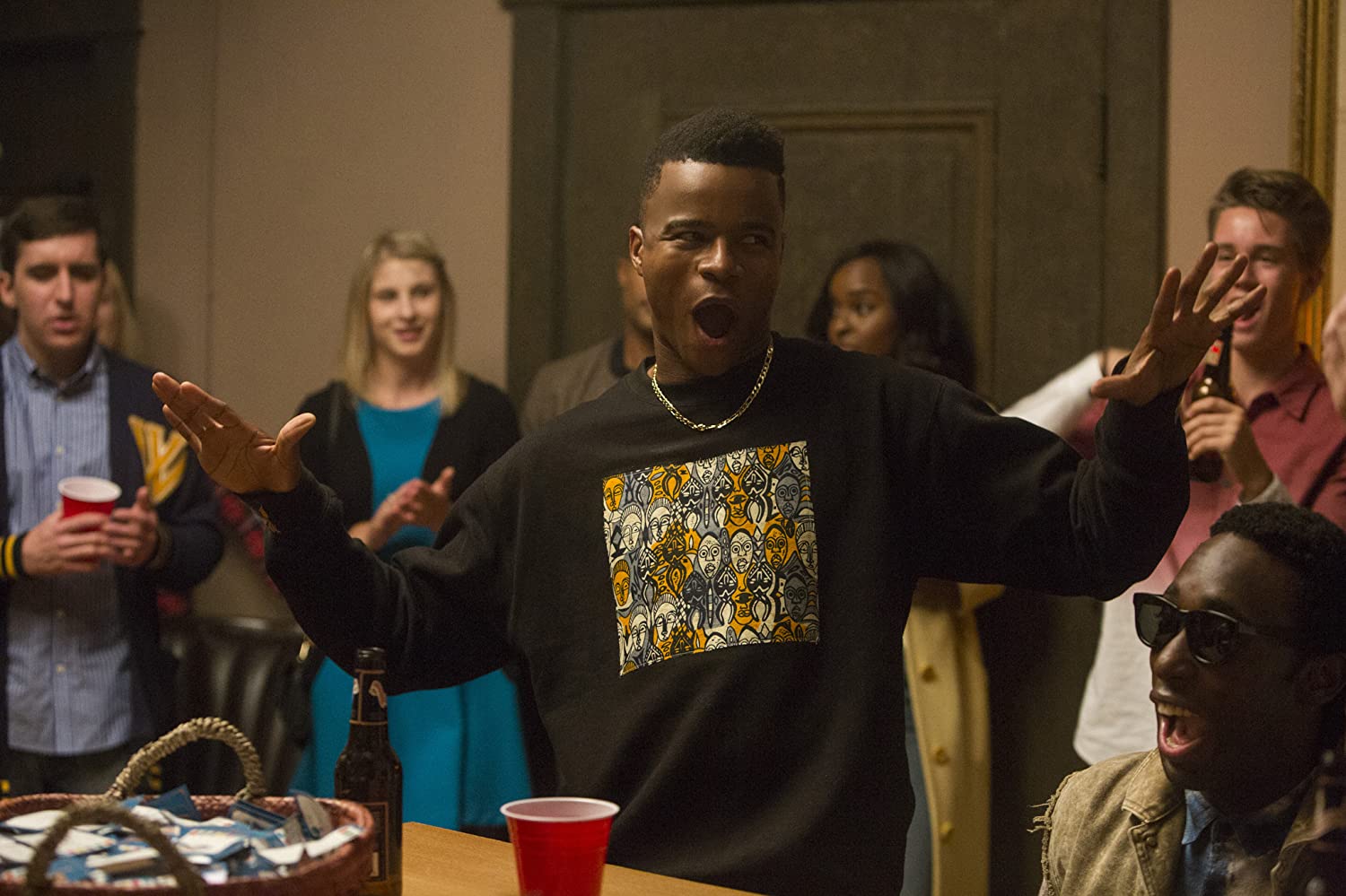
image c/o imdb.com
Chapter 5:
Reggie Green is a smart revolutionary who has had similar experiences to Sam during his time at Winchester, which is why he’s so happy when he hears her rebelling in class.
We cut to the present where he’s hanging with Al (Jemar Michael), Joelle, and Sam until Sam gets a text from Gabe and is off. From that point on Reggie’s day is soured, though his friends do try to cheer him up with free food (care of three different campus events), and eventually settle on a party for the win.
Unfortunately, things go horribly awry when Addison (Nolan Gerard Funk), host of the party and a friend of Reggie’s, begins to sing along to a song featuring the N-word without self-censorship (an issue also explored in an episode of the Black*ish spin-off Grown*ish). This results in an argument that quickly pulls everyone else at the party in. Tensions rise and someone calls the cops. Reggie is pushed into Addison, which could escalate, but then everything goes sideways.
A campus officer breaks into the tussle, separating Addison and Reggie only to single out Reggie by demanding to see his student ID to prove he belongs there. Addison tries to intervene, but it fails, and Reggie – rightfully insulted – refuses to capitulate. The cop then pulls a gun demanding to see Reggie’s ID. EVERYONE is horrified.
Shaken, Reggie manages to get his ID without being shot and the cop holsters his weapon before shutting the party down and leaving.
This episode ends with him in his dorm room, crying on the floor as he processes what’s happened. Sam, on the other side of the door, tries to help by demanding they do something in response.
This chapter has a few other things to consider, besides the obvious. There’s Reggie’s feelings for Sam and how her relationship to Gabe is a sore spot not only for him but for black people in general. Then there’s introduction of Rashid Bakr (Jeremy Tardy), and Ikumi (Ally Maki).
The debate about whether a black woman choosing to date a white man is detrimental to the cause will never be settled. It’s interesting to note that in many of the instances where I have seen this question played out, black women choose to date white men, while white women are accused of stealing black men away. It’s never been presented conversely, with white guys stealing black girls, and black guys choosing to date white girls (at least from the perspective of outside parties). Because Sam is a black woman, the issue of why a black man would date a white woman (a relationship we never see in this season) isn’t brought up, but the reason for that circumstance is – jokingly being willing to engage in anal sex is the culprit.
Rashid points out that all his friends do is complain; he wants to know what they like. Funnily enough I believe most, if not all of their replies, revolve around food. It’s a cute moment, but it does present an important question: if you complain about everything around you when do you find time to enjoy anything? Being from Kenya, it is absolutely possible he’s experienced very real hardships in his life – not just the first world problems many of his friends have – and it could explain why he’s so eager to soak up the positive instead of dwelling on the negative. That’s not to say the larger issues of the world don’t matter or shouldn’t be discussed, but maybe don’t forget all the good things around you too.
Ikumi, the self-proclaimed “Asian friend”, seems to represent the idea that other minority groups are marginalized as well – using the example of movies. It is worth noting that exactly what kind of Asian Ikumi is, is never addressed, and throughout the rest of the season she is merely a background player. There are also no additional Asians throughout the series – there’s one scene when Troy is campaigning, but that’s it. Is this a commentary on the idea of the token black friend? I guess it could be, since the usual stand-in (the token white friend) is serving a significantly (pun intended) greater purpose than just filling out a roster spot. It is also worth noting that, as far as I can tell, there are no obvious Hispanic or Latinx representations – Silvio comes close being part Mexican – especially in the core group of friends itself.
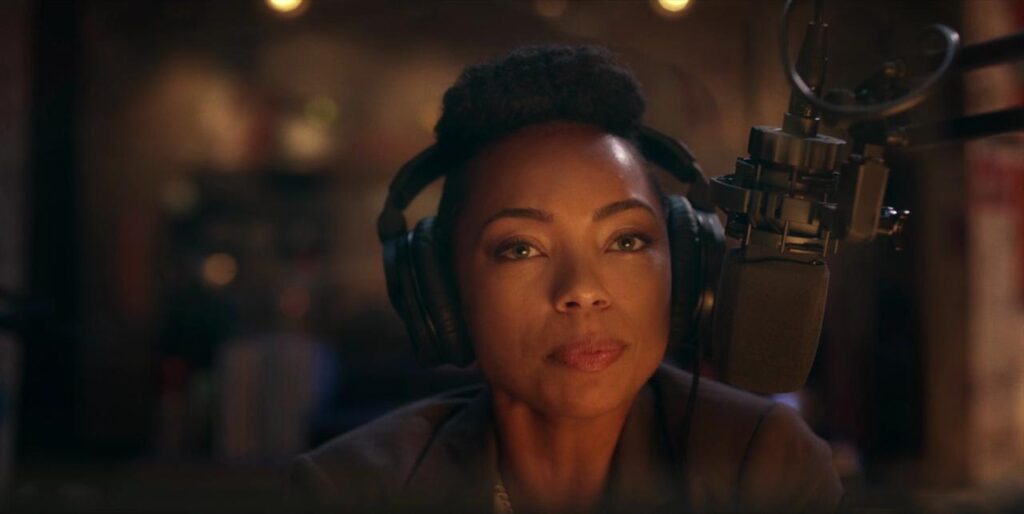
image: IMDB.
Chapter 6:
Juxtaposed with Reggie’s horrifying run-in with the campus police are images of the ideal Ivy League University, complete with a narration about what college should be like, the experience it should offer its students.
We don’t get a new perspective this episode, instead the cycle jumps back to Sam. She starts off outside of Reggie’s dorm room where we left her last chapter.
Sam spends most of the episode crusading on Reggie’s behalf. Confused at finding herself drawn to her friend in a way she hadn’t been before. She wants justice but the only way she knows how is to make noise and rally others her cause, and she can’t understand why Reggie isn’t in step with her.
Perhaps his reaction differs because this terrible act happened to him. He didn’t watch it on TV, or the internet, no, he was front and center for the whole thing, and that leaves an impact. It’s a shame that this episode treats Reggie’s emotional fallout as a C plot, especially since the A plot centers on Sam and Gabe’s relationship.
Our favorite firebrand has been putting off meeting her boyfriend’s people. The only bright side to this encounter is Gabe’s friend Vanessa (Francia Raisa playing a very opposite version of her character from Grown*ish). She offers some sage insight into Reggie’s mental state calling him a public victim – a psychology term meaning his pain is politized before he can process it. Sam appears to understand this, until she doesn’t. When she eventually reconnects with Reggie, learning he wrote a poem about his feelings, she wants to co-opt it for their protest.
Any resentment is buried when Sam’s conflicted feelings result in her spending the night with Reggie – a cliffhanger moment played out brilliantly in the next chapter. But why does she do it?
I speculate that Sam has confused her feelings of fear with those of desire. In fact, it’s a common TV trope that once two will-they-or-won’t-they individuals survive a near-death experience their unwillingness to complicate the situation with sex goes out the window. Sleeping with Reggie reaffirms he is alive to Sam, it comforts her subconsciously. Unfortunately, it also complicates their relationship because Reggie finally has what he wants.
The B plot of this chapter is everyone else’s reactions to Reggie’s trauma. There are some solid moments including a conversation Sam has with the Dean that portends to a later near-repeat of Reggie’s experience, a moment when Coco stands up and reminds her peers that fighting the power has real consequences (“Who cares if you’re woke or not if you’re dead!”), and a brief interaction where Kurt extends an olive branch (in the worst way possible) to Sam in hopes of collaborating with her.
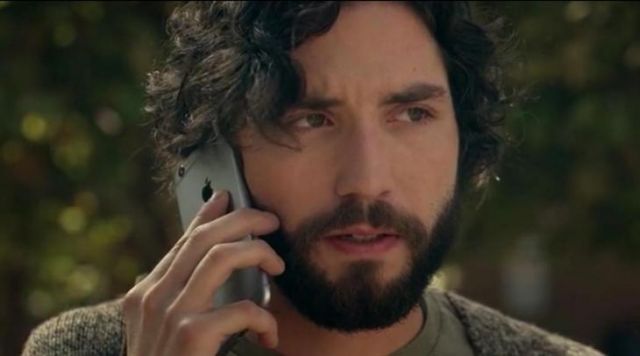
image c/o spotern.com
Chapter 7:
Weirdly, this episode does not continue the circle back, instead we shift our attention to Gabe.
He gets the same background treatment as every other character study we’ve had so far, with the exception being that he must avoid being an oppressor versus showing us examples of him being oppressed. Frankly, it’s a necessary level of consideration but a bit of a fail.
Gabe’s existence in this universe amounts to nothing more than Sam’s white boyfriend. All the events that happen in this chapter serve the love triangles between Gabe, Reggie, and Sam, and Joelle, Reggie, and Sam.
It’s nice to see Gabe interact with another member of the black students besides Sam, even if it’s because he’s forced to, and all they talk about is his relationship with Sam. Joelle is a fantastic character and I really, really wish there was more of her. Spoiler – she doesn’t get a character study episode this season, and that simply shouldn’t be!
With respect to the second big incident of the season (the party gone bad) we learn that it was Gabe who called the cops. Joelle, who just finished saying how happy Sam is with him, immediately advises him not to tell her about this truth.
The advice seems to be working, and their relationship evolves, until the next morning rolls around and Sam listens to the 9-1-1 recording outing Gabe as the caller. They fight and though Gabe goes to AP house to continue to fight for Sam he sees Reggie put an arm around her and knows his worst fears are confirmed.
The best part of this chapter are the mini-film homages that represent Gabe’s worst case scenarios of Sam and Reggie’s affair. We are told the reason Gabe and Sam got together is because they bonded over their love of films and given how his imagination chooses to play out these hypotheticals, I’m certainly convinced he is a film buff.
Where are Sam’s fun fantastical hypotheticals? Is it on purpose that the only time we see any sort of surrealistic take on reality is during the white guy’s episode? I’m not sure what that says, if anything, but I want more of this. I want to see how other characters would paint the world if they let their imaginations run wild. Hell, Troy’s the one smoking pot, where’s his trip down the rabbit hole??? Maybe next season…fingers crossed!
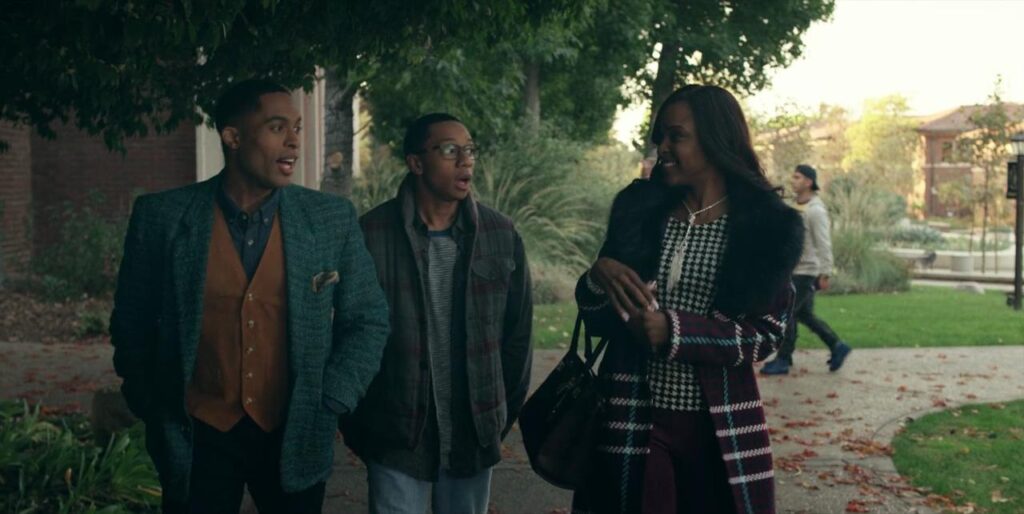
image c/o imdb.com
Chapter 8:
Hello, repeat perspective number two. Lionel’s second time in the spotlight focuses in part on his perspective of the party gone bad (he also wanted to call the cops), but then veers off into his unrequited crush on Troy.
He pitches a feature on his roommate to Silvio but is tasked to write about the Griffin Day Parade instead. Taking a page from the classic rebel cop book he defies his boss’s orders and brings the idea up to Troy directly as the two play videogames; Troy is down for it.
The day of the parade, Lionel finds Brook (the writer Silvio assigned to the Troy story) on-site talking to Mr. President. He’s pissed and whisks his roommate/crush away for a day of conversation and off-campus bonding. They wind up at a bar where some truths about Troy are exposed, both sad and surprising. There’s also a truth Lionel needs to face – Troy is straight!
Unrequited love is always a tragedy to watch in motion but with the added difference in sexual orientation, denial has a whole lot more work to do. This series has at least three instances of one-sided affection but while one of those might see some progress, another had some progress, the last is unlikely to grow legs – for obvious reasons.
Troy’s character suffers a little here and not just due to his indifference towards cheating on Coco. I would argue that not only does Troy know Lionel has a crush on him, but he takes advantage of this knowledge. I say this because the class president isn’t stupid, he might be controlled by his father, and not the most academically accomplished, but he knows people. There’s no way he doesn’t pick up on his roommate’s feelings. Especially since it’s impossible to miss Lionel’s lean-in for a kiss right before Troy sticks the sample cup in his face.
The character of Brook is another sidelined minority we never get to see again – the hardworking, underappreciated, female co-worker in a male dominated industry. Though she is routinely made fun of, she still delivers every time, mostly because she can never take her eyes off the prize, unlike say Lionel, who arrives on the site of his assignment late.
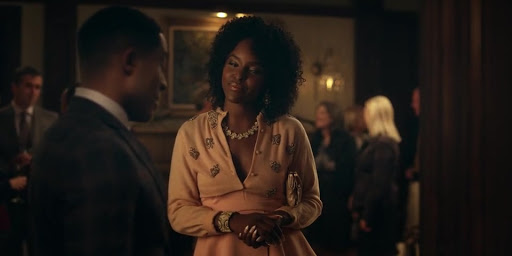
image c/o recapguide.com
Chapter 9:
Coco occupies the penultimate episode of the season, and this time we focus on her flawed life philosophy. She goes by the quote “Behind every great man is a great woman.” Making it her personal goal to be that great woman. An interesting take on what is generally seen as a pro-feminist sentiment. Here it becomes a sinister trap for any poor girl who reads into it too literally.
Though her opportunity to reach these desired heights is facilitated by an old white man, Coco doesn’t waste the gift. Her initial attempts to garner a white boyfriend prove fruitless but when a second chance to lock down Troy comes along, she pounces.
Theirs isn’t a perfect relationship but it has some perks, like getting to meet the Handcocks – one of Winchester’s biggest donor families. Troy thinks his father is trying to get close to him, but Coco knows better. Unlike her paramour, Colandrea isn’t playing the part of put-together black person – she speaks WASP fluently, is highly ambitious, and pays close attention when people of power are talking. But because she is a woman, she’s been made to believe her worth will only be appreciated in service of a man.
The ending of this chapter finds Coco transformed in multiple ways. For one thing she sheds her wig and embraces a more natural hairstyle, for another she confronts Troy about his infidelity only to have him counter with her misunderstanding of their relationship status. While he makes a good point about her shallow motives for being with him, this revelation doesn’t get her down for long, instead Coco comes to terms with the fact that her current life goal model isn’t working for her anymore. She’s more than the man she’s dating and she’s going to make sure everyone else see it.
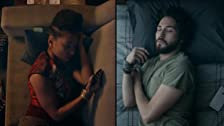
image c/o imdb.com
Chapter 10:
The final episode circles back to the beginning with Sam as our focus point. Fun fact: the telephone scene between Sam, Gabe, Reggie, and Lionel features all six of our focal point characters!
There’s not a lot to this episode in terms of action until the end. Sam and Gabe have relationship issues – which come to a head at the end. Lionel and Sam talk about her plans to protest the townhall – which gives Lionel information he’ll use later towards the end. Troy and Coco’s tensions build to a climax – resulting in trouble for each of them by the end. Even Kurt shows up to spread his usual brand of anarchy at the rally.
The fallout from the townhall/protest touches all our players. Reggie finally moves on from his crush on Sam, in part thanks to Joelle’s stellar advice. Lionel embraces his power as a reporter, defying Silvio’s orders to write an explosive expose about the real reason the Dean is against the protest. Coco learns while she is capable, she isn’t immune to mistakes and without someone to hide behind her failures are all her own now. Troy – well, more specifically – Troy’s father comes to realize that regardless of how his boy’s been raised he’s still just another black man to the police. And Sam finds her words from the previous episode slightly prophetic as Gabe tells her that being with her is far too hard and they will never work. Ouch.
But life goes on, and once all the excitement from the protest/townhall dies down the black student body of Winchester University gather in AP house for their weekly Defamation screening. It’s a comforting scene that promises no matter what happens, no matter what changes might be looming in the horizon, there’s always over-the-top prime time dramas to ground you. The other positive take away from this ending is that despite their failures and losses, Sam and Coco might just get another chance at friendship.
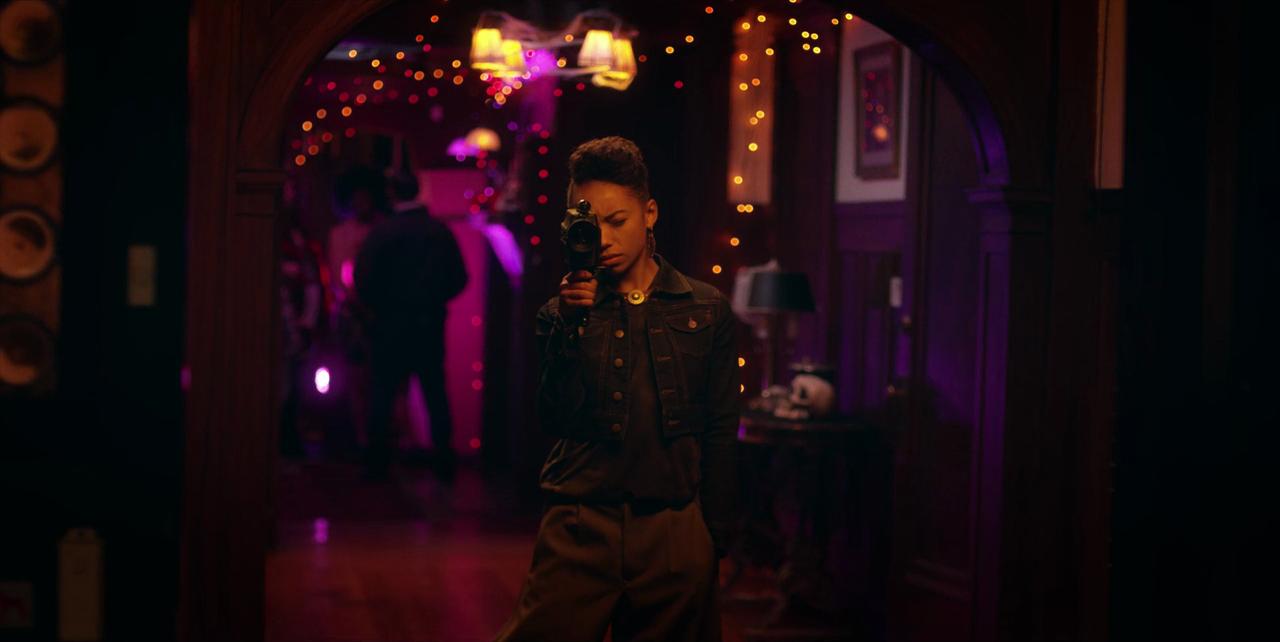
image c/o imdb.com
Season Review:
As an inaugural season this one isn’t too shabby. It ends by building up possible storyline channels for the next season, but wihout a huge cliffhanger that might leave the audience butt-hurt if no second season happens. And no, I’m not counting the abduction of Kelsey (Nia Jervier)’s dog.
Pros:
This show benefits from multiple views as many of the themes and underpinnings may be missed the first time around.
It is designed to make the audience think and in this regard it succeeds. Even with one run-through important conversations can be started in reaction to the various events over the season.
Finally, there’s the characters themselves. Their portraits are complex and individualized on first watch, but repeated viewings expose the brilliant subtext here. Each of focal character appears to represent a different aspect of the black experience in America, with some of them representing more than one.
Lionel shows us how black stories are often misrepresented and misinterpreted in the media. He is also an LGBTQ character and his journey of self-discovery is an important story worth telling.
Sam gives us two perspectives. She’s biracial, and an outspoken revolutionary – a fact made more poignant as she’s a woman since black women are at the center of many of today’s most successful social justice movements.
Colandrea is both the dark-skinned black woman – made to feel ashamed that her skin color isn’t lighter – and the “white” black person – often not seen as a “real” black person because of their manner of dress, speech, and/or success.
Troy, though he touches on this condition, better exemplifies the mythical role-model of what a black man should be – a pillar that speaks to the false assumption that in order for a black man to be viewed as “safe” or “good” he must be perfect in dress, speech, and appearance.
Reggie, by contrast, is every black man who refuses to fit this model while still demanding to be seen as a person. It results in him being labeled a troublemaker and ungrateful, and it puts his life in danger.
There’s a line where Coco points out that Sam’s “light-skinned privilege” allows her to rebel with little consequence, and during the party we see how true this is. Would the officer have pulled his gun on Sam? We know today that police will use deadly force on both black men and women, but at the time this show was created incidents with men were the most common.
Finally, there’s Gabe. Gabe’s purpose is to be one of the “good” white guys. Where Kurt and every other white male featured in this program comes off as an elitist outsider who speaks on race relations with the subtly and insight of a wrecking ball, Gabe is the humbled white male. The self-aware of his privilege, always forced to be on his best behavior, even dates a black woman, “woke” white male. It’s a good comment on how much pressure there is on white people to tread carefully – especially since every other white character in the show doesn’t bother and comes off badly for it.
Interesting note: both Reggie and Gabe get only one episode. This results in them being extremely shallow characters with just one central drive that they share: Sam.
Cons:
My biggest complaint with this show is that the messages it sends are often powerful but then immediately dropped for more palatable subjects. Though I suppose that’s in service of the comedy, after all it’s hard to laugh at a young man almost dying because of the color of his skin.
I also wish there were more nuanced depictions of white people. Maybe that’s an unfair ask, but if your argument is that black people are seen as one-dimensional stereotypes, I don’t think it helps to adopt a tit for tat approach on your show about race relations.
Verdict:
While it may be blunt and in your face at times, I recommend Dear White People to anyone who wants to understand the issues facing black Americans. Don’t get me wrong, it’s not a bible by any means, but it is a digestible introduction for those willing to have their interest peaked.
